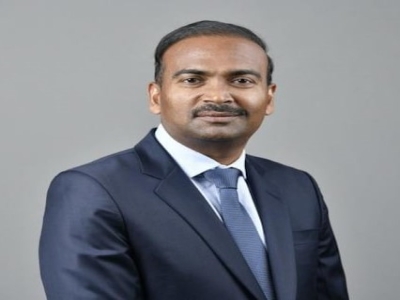Listen to this article
PGIM India Mutual Fund has seen a tremendous growth of 112% in its AUM over the last one year. What are the three things that have contributed to this growth?
We have done well over the last year and the previous three years since we rebranded ourselves as PGIM. During this period, PGIM India introduced a range of products to offer diversification benefits to investors. The growth story has been driven by the three Ps – Processes, Performance and People.
As MFDs/RIAs started engaging with us, we showcased the sound investment process that we have been following in terms of stock selection and risk management. Our funds have delivered good performance which has drawn the attention of astute MFDs/RIAs.
People are vital and we have developed strong teams across various functions in the organization. We continue to build PGIM India into a differentiated, cutting-edge investment platform for enabling investors to make informed and safe investment decisions with access to the right kind of information, products and solutions to enhance their financial well-being.
PGIM India Mutual Fund has introduced the concept of GARP. Can you take us through this philosophy of the fund house?
Growth at Reasonable Price (GARP) is a simple yet effective principle of investing that has been time-tested for many years. While investing in equities is for growth, equally important is the price one pays for growth. GARP philosophy balances these two tenets of investing; hence, it is an excellent long-term philosophy to stick to.
Historically, we have seen the markets swing between extremes of optimism and pessimism – wherein we have seen approaches like growth at any price or focusing excessively on price to book value. GARP thus helps avoid extreme overpricing as well as avoiding value traps. This philosophy encompasses the fundamental approach of investing in companies with healthy growth prospects, where valuations are not unrealistic and there is a margin of safety.
Why should MFDs/RIAs look at GARP and how can it yield better results?
MFDs/RIAs aim to create long-term wealth for their clients after considering risk appetite. We believe this can be achieved by investing in well-diversified and sustainable portfolios and not by chasing short-term returns or flavours of the season.
GARP-centric portfolios in the long term should offer superior risk-adjusted returns through their very nature of not overpaying for growth, at the same time participating in growth of the investee companies. By combining the best attributes of both value and growth investing, GARP philosophy should yield superior long-term returns.
What is your fund management philosophy when it comes to debt funds?
Our fixed income investment philosophy is to “Protect Capital and Grow Income “. Debt Investors do not like surprises and volatility. Our philosophy underlines the fact of safety first and downside protection at all times.
We focus on fundamental analysis and follow a relative value framework for asset allocation and security selection while emphasising risk management and diversification. We have a system of internal credit ratings which is based on in-house financial ratio analysis model. We look to generate alpha through our duration calls while being conservative on credit selection; thus we ensure downside protection.
Why do you think investment process is more important than performance of fund managers?
While the investment process is input, performance is an output. Although the fund manager plays a key role in stock and sector selection, the soundness of the investment process would determine the sustainability of performance and withstand short-term shocks.
While GARP model must be helping you to find attractive opportunities in sectors and stock, no model can tell you how much exposure should be taken in a particular stock or sector and when is the right time to exit an investment. How do you take such calls?
You are right. GARP provides a framework. But which stock and sector to be overweight or underweight on is part of portfolio construction and management done by the fund manager in assistance with the research team. And this is a function of current valuations, growth prospects, liquidity and presence in benchmark indices.
While we respect the benchmark, we do not necessarily base our portfolio allocation on index weight, and we pride ourselves on having a low overlap with the index. Decision to exit or trim stock exposures is generally guided by either
- Stock reaching a valuation wherein most of the positives are factored in and possibility of further earnings surprises are less or
- The thesis on which we invested in the stock no longer holds or has undergone a change, making risk-reward unattractive.
How can an established investment process help fund managers mitigate risks?
The job of a fund manager is to generate superior risk-adjusted returns and adhere to norms relevant to specific schemes as per SID. A sound investment process would aid the fund manager in doing this and, more importantly, assist the fund manager and asset management firm in mitigating the risks.
For example, as part of the investment process, we have outlined sectoral underweight and overweight calls that a fund manager can take, filters for including a stock in the investment universe (low leverage, positive operating cashflows, better governance) etc. We believe many of these measures would help us avoid big mistakes, thereby contributing to performance.




